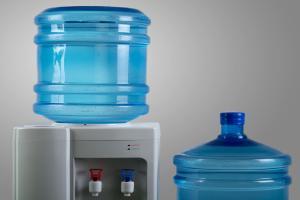Water covers a little over 70 per cent of the earth surface, and by this, we erroneously presume that there is adequate potable water

Representational Image
Desalination processes based on renewable energy (RE) could be a solution to India's perennial water woes. Desalination is the process of distilling sea or polluted water (called source water) using thermal (heat) or electrical energy. This process removes salts (chlorides, fluorides, sulphates, etc.) which are dissolved in water, thereby rendering the source water consumable (called distillate). However, these processes have a major drawback -- they consume a large amount of energy, most of which is derived from fossil fuels. Considering the fact that India and the rest of the world are moving towards fossil-free energy generation, it would be prudent to combine RE with desalination technologies.
Some of the commercialised and extensively used desalination technologies are Multi-Stage Flash (MSF), Multi-Effect Distillation (MED) and Reverse Osmosis (RO). Adsorption-based desalination shows great economic promise, but the technology is yet to mature. MED and MSF operate by heating the source water till it evaporates and then collecting the distilled water. RO is a membrane-based desalination technology, where the source water flows across a membrane (similar to a filter paper) with the help of a pump. Salts are filtered out as the water is forced across the membrane, thus ensuring that only desalted or distilled water passes through.
There are many probable RE candidates, such as Parabolic Trough Collector (PTC), Compound Parabolic Collector (CPC) and Solar Photovoltaic (PV), that can be used to power commercial desalination technologies.
PTCs and CPCs use reflectors such as mirrors to capture solar energy and convert it to thermal energy using metallic receivers, which are in the form of circular tubes. PTCs and CPCs can power MED and MSF as these desalination technologies consume thermal energy. PV, on the other hand, converts solar energy directly into electrical energy. Therefore, PV can supply the required electrical energy to power RO systems.
The combination of RE-desalination technologies depends on various factors, such as location, source water availability and quality, distillation capacity, cost of desalination and environmental constraints. However, it is finally the cost and the capacity that determine the technology combination.
Combining RE-based technologies with the desalination process ensures that the production of pure water is non-polluting. This has two benefits: One, in the short-term, clean drinking water is produced, which could alleviate water scarcity problems; and two, in the long-term, the use of RE-based technologies will aid in reducing the effects of climate change.
As an immediate solution, we recommend solar thermal/PTC with MED system as the best combination based on the following rationale: That it can operate for 24 hours and, hence, cater to large water requirements; that it can handle a wide range of water quality, and finally, it allows water production at a low cost. This combination looks good for immediate implementation until other emerging technologies (such as adsorption technology) are mature enough for commercialisation.
Catch up on all the latest Crime, National, International and Hatke news here. Also download the new mid-day Android and iOS apps to get latest updates
 Subscribe today by clicking the link and stay updated with the latest news!" Click here!
Subscribe today by clicking the link and stay updated with the latest news!" Click here!











